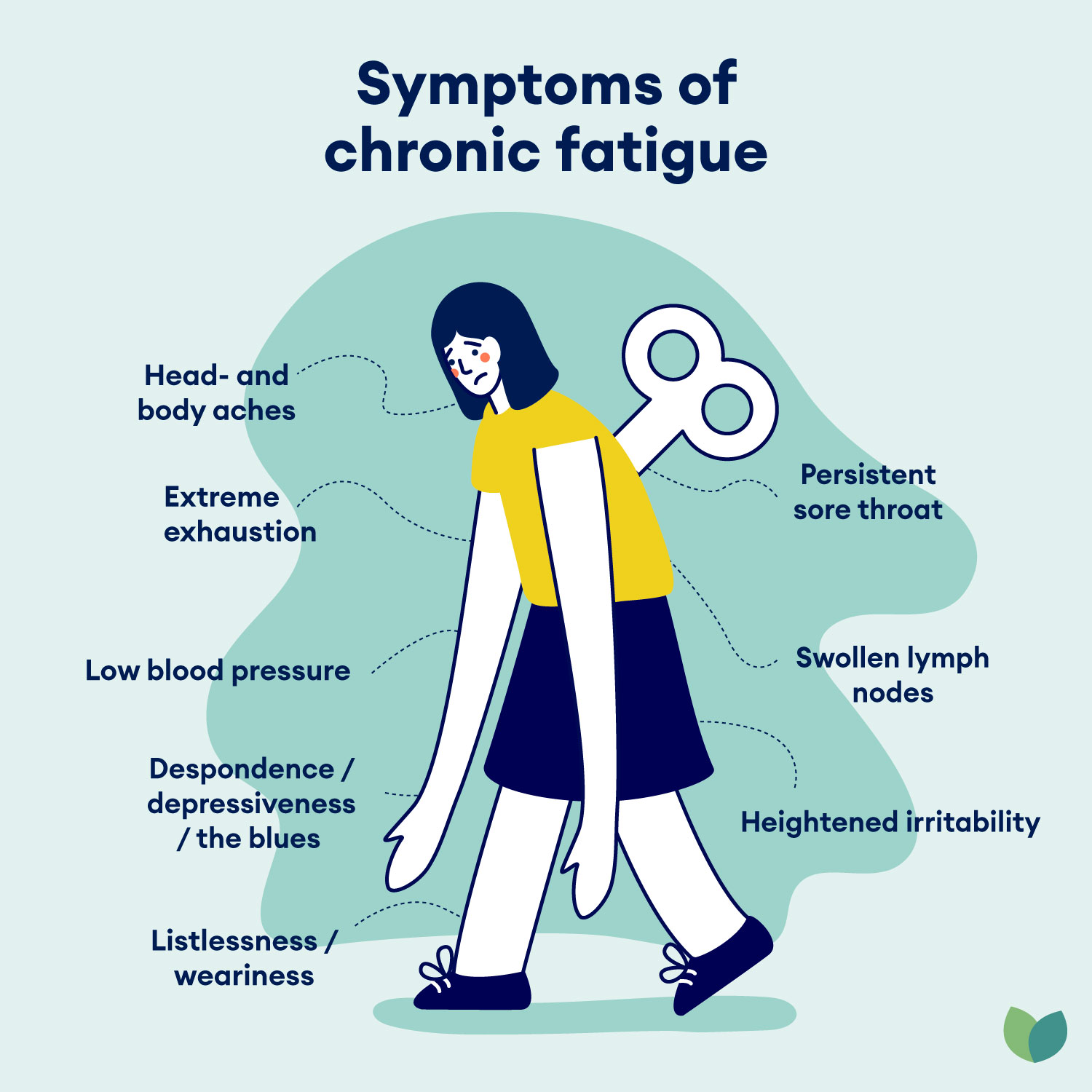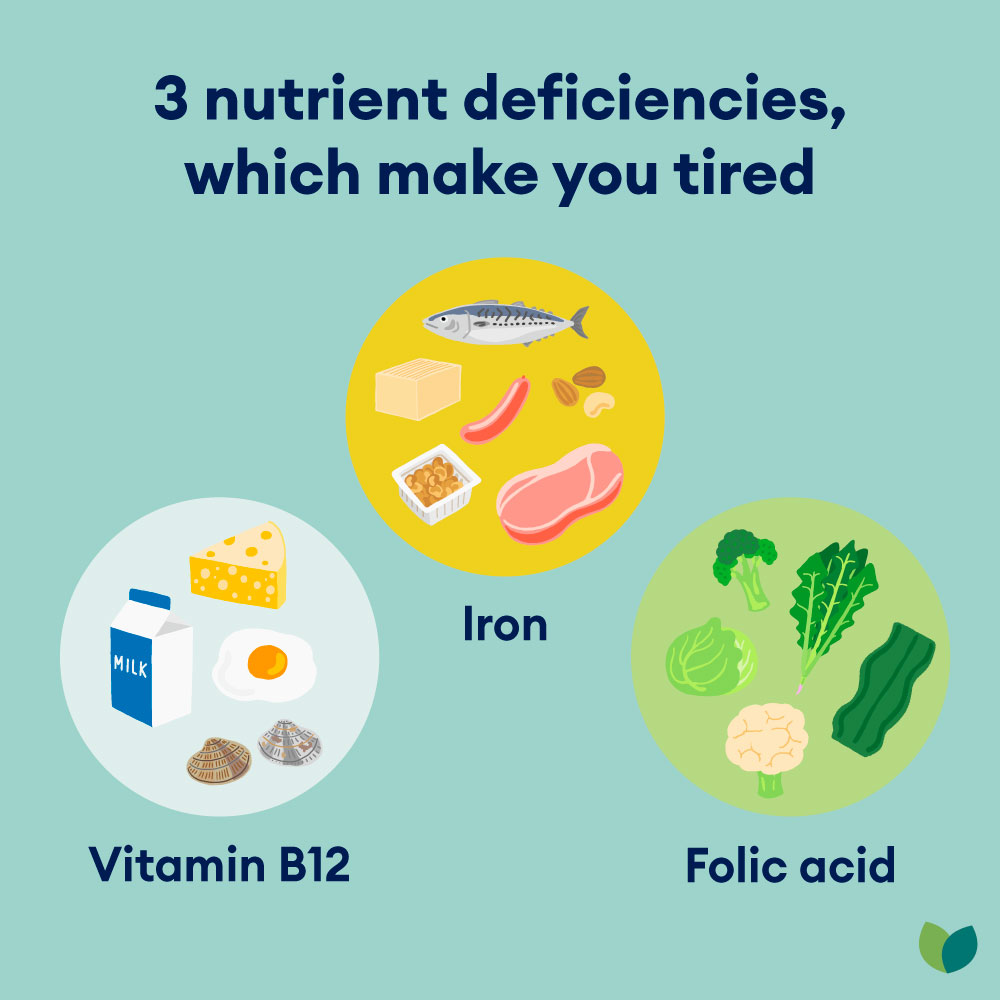Fatigue is a natural indication that your body needs rest and recuperation. However, if fatigue persists over a long period of time and has a negative impact on your performance and quality of life, there may be underlying causes. In this article, you will find out what could be causing you to feel tired often and what you can do about it.
Why am I so tired?
Feeling tired and exhausted – everyone knows this from time to time. If you are constantly tired and have little energy despite getting enough sleep, it is important to get to the bottom of the possible causes. In addition to classic factors such as lack of sleep and stress, chronic tiredness that lasts for weeks or even months could also have a physical or psychological cause.
Tiredness is a normal and necessary element of our biological rhythm. It can occur as a reaction to physical strain, emotional stressors or simply as a sign of the need for rest. Fatigue is our body’s way of signalling that it is time to conserve energy and regenerate in order to maintain mental and physical performance.
Common causes of fatigue
There are numerous natural and obvious main causes of fatigue, many of which are related to our lifestyle. These include factors such as
- Lack of sleep
- Overwork
- Nutritional deficiencies
- Consuming too few or too many calories
- Fatty food
- Too much alcohol or caffeine
- Certain medications

Stress
Stress is a well-known energy thief and one of the most common causes of persistent fatigue. Chronic stress can cause the body to be constantly set to ‘fight or flight’ and continuously produce stress hormones such as adrenaline and cortisol. This can disrupt the natural sleep-wake cycle and cause sleep problems, leaving us with less energy during the day (1). If the body runs at full speed for long periods of time, this can develop into a chronic condition, i.e. you are persistently tired and exhausted.
However, stress is not just limited to the mental state. It can also have physical effects by affecting the metabolism and putting the body in a state of tension. It can lead to muscle tension, increased blood pressure and an increased heart rate, amongst other things, which puts a strain on the body and robs us of extra energy (2).
What you can do: Find coping mechanisms for stress that resonate with you personally. These can look different for each of us. However, relaxation techniques such as meditation, yoga or breathing techniques that help to increase stress resistance are usually ideal.
Nutrient deficiency
Our diet plays a crucial role in our energy levels. If we eat a one-sided diet of nutrient-poor, processed foods on a regular basis, this can lead to a lack of essential nutrients. In particular, iron deficiency and deficiencies of vitamin B12 and folic acid are often associated with increased fatigue (3).
These nutrients are essential for the production of energy in our cells: Iron is needed to transport oxygen to the cells. An iron deficiency therefore leads to a reduced oxygen supply and can often cause anaemia. This condition often manifests itself in constant tiredness and exhaustion. Vitamin B12 and folic acid are also important for energy production and metabolism. A deficiency of these nutrients can impair cell function and thus lead to reduced energy levels.

What you can do: Eating a balanced, nutritious diet can help reduce fatigue and restore your energy levels. Make sure to eat mostly fresh, unprocessed foods. In particular, foods such as meat, fish, pulses, seeds and green vegetables are particularly rich in the nutrients mentioned. However, additional supplements with iron, vitamin B12 and folic acid can also help to remedy a nutrient deficiency and the associated fatigue.
Infections and diseases
Infections are natural defence reactions of the body that require energy. When the body fights against pathogens, it can be noticeable that we are tired and exhausted – the body now needs all its resources to fight the infection (4). Unnoticed infections or chronic inflammation in the body can also affect your energy levels for a long time. It is therefore important to get to the bottom of symptoms of exhaustion and cure infections.
Chronic illnesses such as diabetes, heart failure or thyroid disease can also put a massive strain on the body and lead to persistent fatigue (5). Diseases such as these affect the metabolism and the body’s ability to utilise energy efficiently. The result is a general energy deficit. Fatigue can be one of the first symptoms to indicate an underlying health disorder.
What you can do: If you are often tired and you are not aware of a direct cause, it is always advisable to see a doctor to get to the bottom of the cause. If you are aware that your immune system is under attack because you have a cold, for example, it is very important to give your body a rest and make sure you get enough nutrients and fluids. You can also boost your immune system by eating vitamin-rich foods such as fresh fruit and vegetables every day.
Lack of fluids
A lack of fluids, also known as dehydration, is often overlooked when it comes to the causes of fatigue. Insufficient fluid intake can lead to reduced blood flow and oxygen supply in the body, which manifests as fatigue (6).
The human body needs water to carry out many of its vital functions – including the transport of nutrients and oxygen to the cells. If there is not enough water in the body, which can lead to reduced blood volume and slower blood circulation. This in turn causes fatigue, concentration problems and a general decrease in physical and mental performance.
What you can do: Make sure you drink enough water throughout the day (1.5-2.5 litres) to provide your body with energy. Especially in hot weather or during physical activity, you should increase your fluid intake. When we sweat, we not only lose water, but also electrolytes (essential minerals), which are important for the water balance in the cells. If you sweat a lot, it may therefore be advisable to add electrolytes to your drinks.
Lack of exercise
Exercise is a natural energiser. Regular physical activity promotes blood circulation and oxygen transport in the body, which makes us feel energised. Lack of physical activity, on the other hand, can lead to reduced blood flow and lower production of endorphins. (7) Endorphins, also known as ‘happy hormones’, are released during exercise and help to elevate mood and increase energy. An inactive lifestyle with regular exercise can lead to a lack of these important neurochemical messengers and have a negative impact on energy levels.
What you can do: Make it your goal to incorporate regular physical activity into your daily routine. This can be in the form of walking, cycling, working out at the gym or other forms of exercise. Even small activities can help boost energy levels and reduce fatigue.
Winter fatigue - constantly tired despite plenty of sleep
Winter fatigue, also known as seasonal fatigue or winter depression, is a phenomenon in which people suffer from increased tiredness, exhaustion and low mood during the cold winter months. This phenomenon is closely linked to the lack of sunlight during this time of year. The main cause of winter fatigue is reduced light exposure, especially the lack of bright daylight. This can affect the circadian rhythm, the natural sleep-wake cycle, and disrupt the production of hormones such as melatonin and serotonin, which regulate mood and sleep.
Another factor in winter fatigue could be lower vitamin D levels, as the main source of vitamin D is sunlight on the skin. Vitamin D is important for many functions in the body, including mood regulation.
Frequently asked questions on the topic "Constantly tired"
Alcohol can cause drowsiness by having various effects on the metabolism and the central nervous system: It slows down the activity of the nervous system and leads to reduced responsiveness, which promotes drowsiness. Alcohol also disrupts the sleep-wake rhythm, which can lead to sleep disorders. Dehydration is favoured by the diuretic effect of alcohol, which means that we feel tired more quickly after a few glasses of alcohol. Blood sugar levels and the oxygen supply in the body are also affected. While moderate alcohol consumption may not have a significant effect, excessive or regular consumption can lead to chronic fatigue in the long term.
There are several reasons why you may not be able to sleep despite being tired. Stress and worries often play a major role. If you are burdened by too many thoughts, fears or worries, it can be difficult to calm down and fall asleep. Unfavourable sleeping habits can also play a role: Irregular bedtimes or activities such as too much screen time before bed can disrupt your natural sleep-wake cycle. Relaxing activities in the evening can often help you to fall asleep more easily. If you regularly have problems falling asleep despite being tired, it is advisable to seek professional help. A doctor or sleep specialist can identify the exact causes and recommend suitable solutions to improve your sleep quality.
Some foods can make you feel tired and listless. These foods usually have an impact on blood sugar levels and therefore your energy levels:
- High glycaemic index carbohydrates: Foods such as white bread, sweets and fizzy drinks can cause rapid blood sugar fluctuations, followed by an energy slump and tiredness.
- High fat meals: Heavy, high-fat meals require more digestive work, which can lead to a temporary energy low.
- Too much caffeine: Whilst caffeine gives you energy at first, excessive consumption can lead to dependence and fatigue later on.
- Alcohol: Alcohol can affect the nervous system and lead to drowsiness, especially in large quantities.
- Nutrient-poor snacks: Snacks consisting mainly of sugar or empty calories can provide short-term energy, but then lead to fatigue.
- Tryptophan-rich foods: Foods such as dairy and soya products contain tryptophan, an amino acid, which can make you sleepy.
(1) Harvard Health Publishing: Understanding the stress response
(2) American Physiological Association: Stress effects on the body
(3) World Health Organisation: Micronutrients
(4) National Library of Medicine: Psychological Stress and the Human Immune System: A MetaAnalytic Study of 30 Years of Inquiry
(5) National Library of Medicine: Diabetes Fatigue Syndrome
(6) National Library of Medicine: Muscle fatigue: general understanding and treatment
(7) National Library of Medicine: Effects of Physical Activity and Inactivity on Muscle Fatigue

